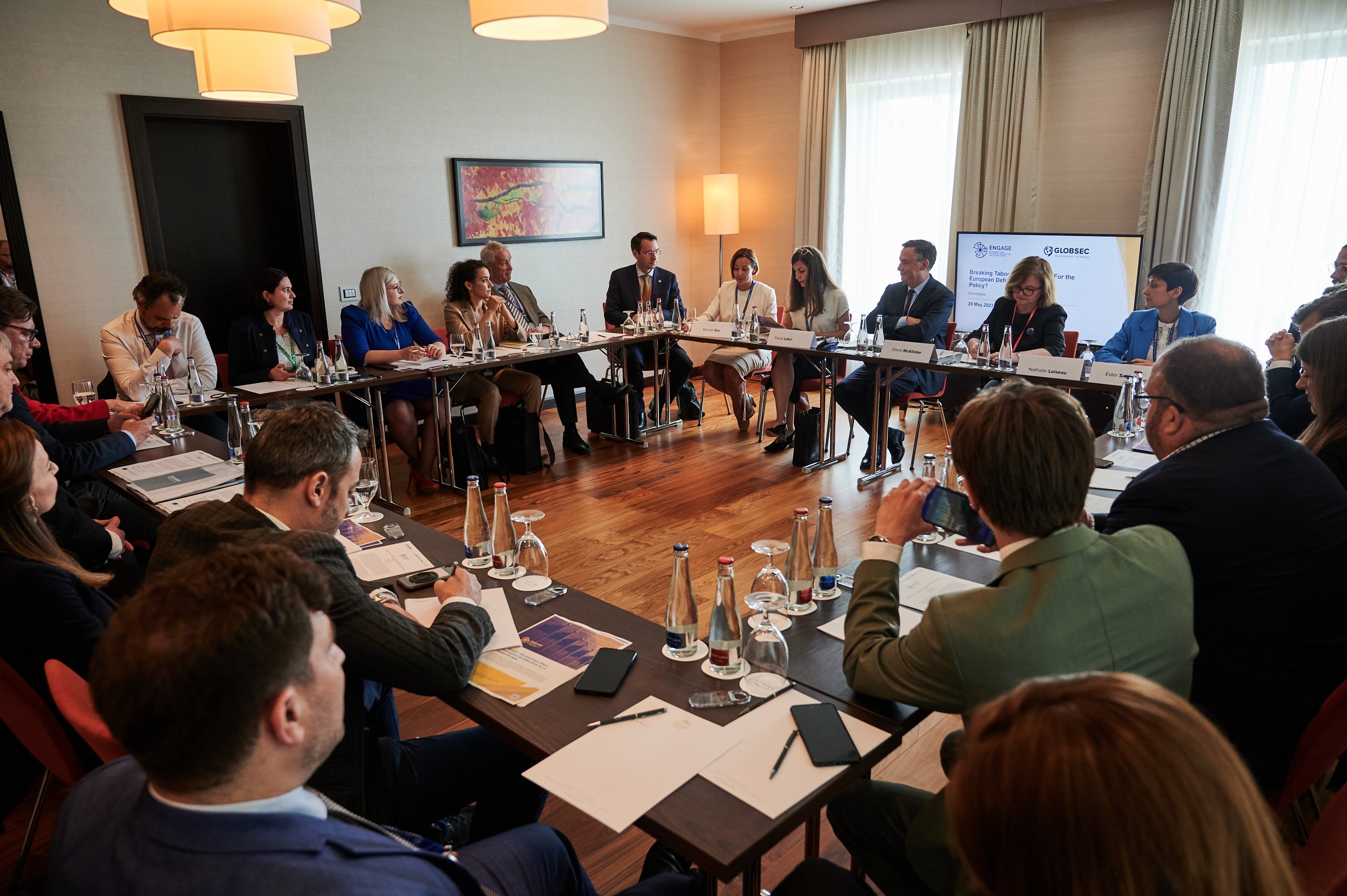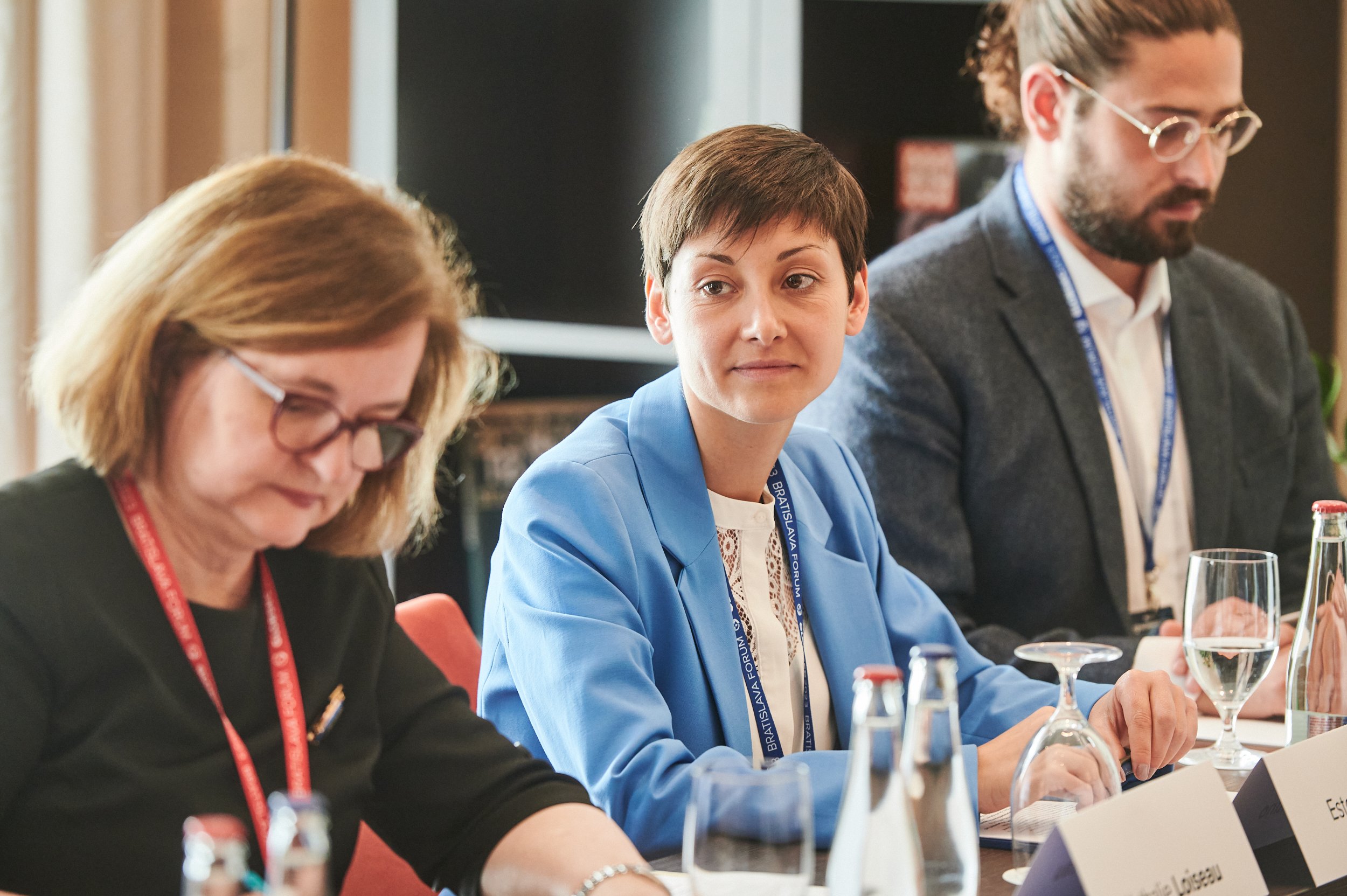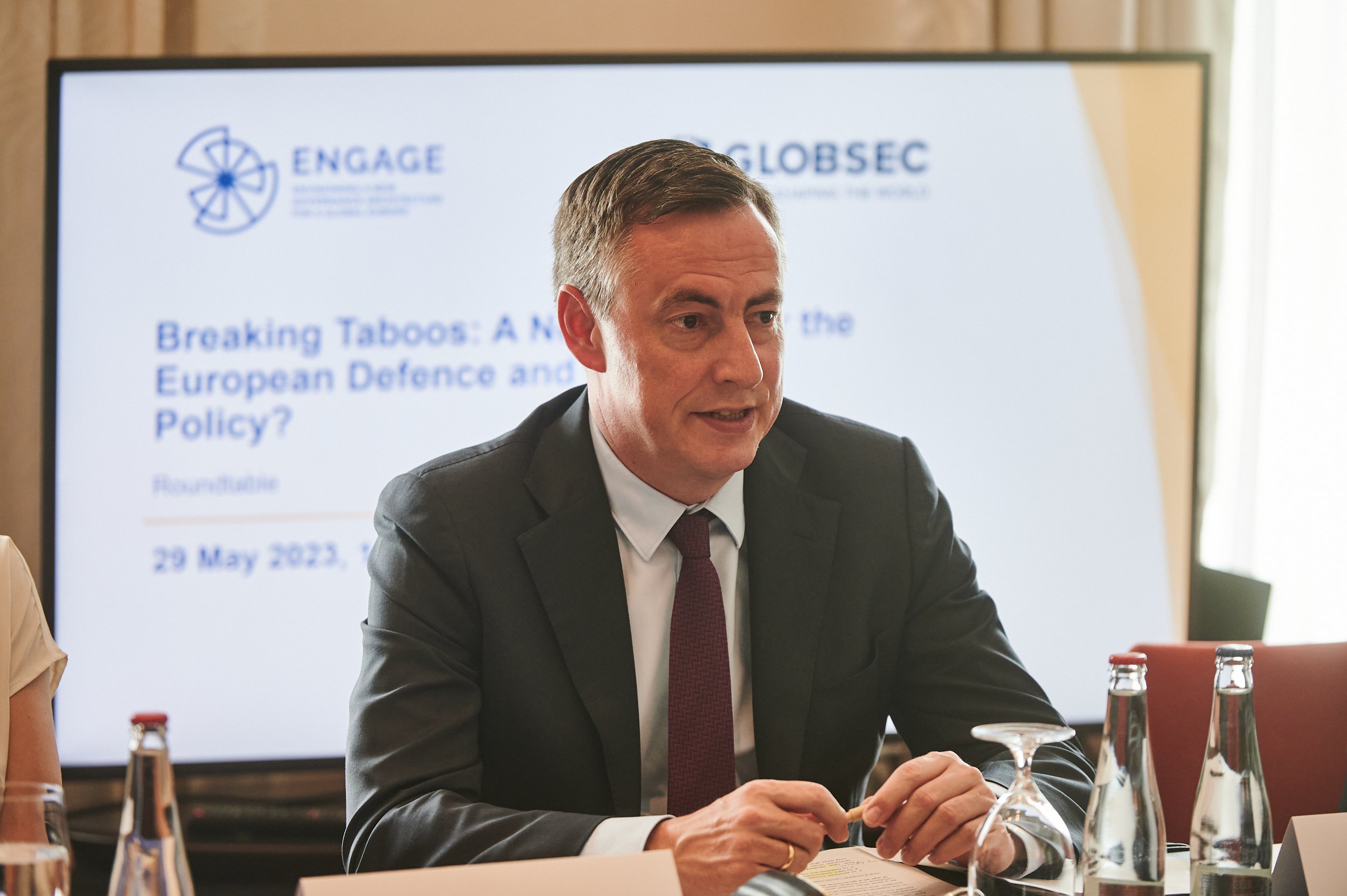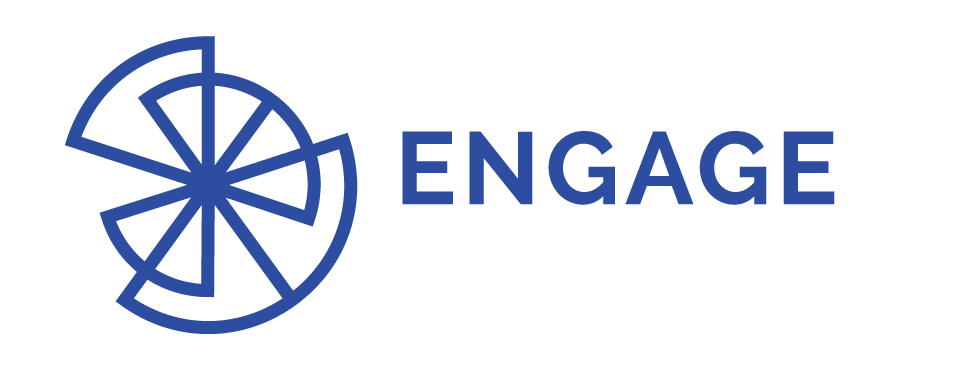Breaking Taboos - A New Dawn for European Defence and Security Policy?
GLOBSEC 2023 Bratislava Forum | Bratislava, Slovakia
Monday, May 30, 2023
The Russian invasion of Ukraine has unleashed the strongest push to strengthen Europe’s defense since the end of the Cold War and triggered the EU’s Member States to take unprecedented actions. Long-standing taboos were broken by unlocking the European Peace Facility for the supply of lethal weapons to Ukraine and enabling joint procurement for urgently needed ammunition. These measures are also in line with the implementation of the Strategic Compass adopted in March 2022, which constitutes the most operational and comprehensive security strategy the EU has ever had. Many feared that the Compass would become another paper tiger and its ambitious provisions would not be implemented. In the end, Member States differ in their threat prioritisation and vision for EU’s role in security policy. And yet, much progress has been made.
In light of these developments, ENGAGE researchers organised a panel at the 2023 GLOBSEC Bratislava Forum to discuss the implications of the Russian war in Ukraine for the EU’s defence and security policy. The Bratislava panel marked the beginning of the ENGAGE White Paper validation process, offering policymakers and EU and Member State officials the chance to provide feedback on the findings and policy recommendations of the ENGAGE project.
During the panel, Ester Sabatino (IISS) presented findings from ENGAGE research on the EU’s Common Security and Defence Policy (CSDP). The panel, moderated by Monika Sus (Hertie School), featured MEPs David McAllister and Nathalie Loiseau, as well as EEAS policy officer Tania Latici, former Portuguese Europe minister Bruno Maçães, and Johann Frank, director of the Cabinet of the Chairman of the EU Military Committee.
The discussion focused on the development and sustainability of recent policy initiatives, obstacles to the EU’s joint efforts to support Ukraine, and how these developments relate to the Strategic Compass and its implementation. Participants noted the need for deeper defence integration in the EU, as well as improved coordination and joint procurement of defence products. They also highlighted the progress already made in the implementation of the Strategic Compass, while reflecting on key geopolitical challenges and differences in threat perceptions among Member States.





